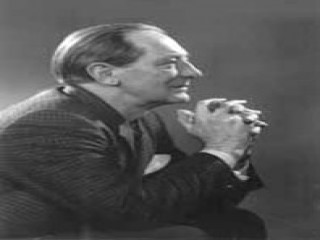
Hugh MacLennan biography
Date of birth : 1907-03-20
Date of death : 1990-11-09
Birthplace : Glace Bay, Cape Breton Island, Nova Scotia
Nationality : Canadian
Category : Famous Figures
Last modified : 2011-06-20
Credited as : Author and novelist, Two Solitudes, The Colour of Canada
Born March 20, 1907, in Glace Bay, Cape Breton Island, Nova Scotia, (John) Hugh MacLennan grew up in Halifax, where he was educated at Dalhousie University. He received his bachelor's degree there in 1929, and won a Rhodes scholarship, which took him to Oxford University. The Oxford years were invaluable, for they provided MacLennan with the opportunity to travel extensively and test his left-wing convictions against firsthand impressions and personal observations.
He returned to Canada in the mid-30s, taking a teaching job at Lower Canada College near Montreal. He later failed to publish a novel based on his earlier travels.
Unable to find suitable employment, MacLennan enrolled in the graduate school at Princeton University and studied Roman history. He obtained a doctorate in 1935 with a dissertation titled Oxyrhynchus: An Economic and Social Study (1940).
MacLennan was inspired, by his earlier literary failures, to write Barometer Rising (1941), a novel based on the 1917 explosion of a munitions ship in Halifax Harbor. This disaster symbolized a traumatic break for Canada from its colonial, pre-World War I past—while embodying a conflict of generational attitudes. With the success of this work, MacLennan staked out a national identity and continued to write, producing Two Solitudes (1945); The Precipice (1948); Each Man's Son (1951); The Watch That Ends the Night (1959); and The Return of the Sphinx (1967). He worked with themes that mirrored major national concerns and the moral and social issues of his time, as well as a growing self-awareness in Canada. He said, however, that he never lost sight of Canada as part of the world community.
As a novelist, MacLennan deliberately undertook to forge a Canadian consciousness in literature, an endeavor which appears to have left him little time or opportunity to experiment with different literary techniques—but which enabled him to master traditional techniques and the economies of an honest and forthright style. Because he was adept at using narrow storylines as springboards to broader statements about his country and his culture, he became a widely translated and respected writer.
MacLennan also wrote nonfiction, including: The Colour of Canada (1972); Rivers of Canada (1974); Voices in Time (1980); and On Being a Canadian Writer (1991).
MacLennan was an essayist of considerable skill. He published several collections of essays, including Cross Country (1949); Thirty and Three (1954); Scotchman's Return and Other Essays (1960); Seven Rivers of Canada (1961); and The Other Side of Hugh MacLennan (1978).
He wrote for a 1965 issue of American Heritage that focused on Canada. The Winter 1979-80 issue of Journal of Canadian Studies was the Hugh MacLennan issue. In 1995, his essay titled "French is a Must for Canadians" appeared in the anthology Influential Writing, edited by W. Connor and M. Legris.
In his role as essayist, MacLennan showed a keen perception of Canada's history, environment, and character. He wrote in a lucid, conversational style which was not without its passion, its moods, and its ironic insights. In 1951 MacLennan accepted an appointment to McGill University. He taught in the English department until 1981, publishing McGill: the Story of a University in 1960. In 1952 he received the Lorne Pierce Medal from the Royal Society of Canada; in 1953 he was elected to the Society. In 1967 MacLennan was named a companion of the Order of Canada. He contributed the foreword to Gertrude Katz, The Time Gatherers; Writings from Prison (1970).
MacLennan won the Governor General's Literary Award more than any other Canadian author: three times for fiction (Two Solitudes, The Precipice, The Watch that Ends the Night ) and twice for nonfiction (Cross-Country and Thirty and Three). In 1987 he became the first Canadian to be awarded the James Madison Medal by Princeton University. The medal is given annually to a distinguished graduate.
MacLennan died Nov. 7, 1990, at the age of 83.
















